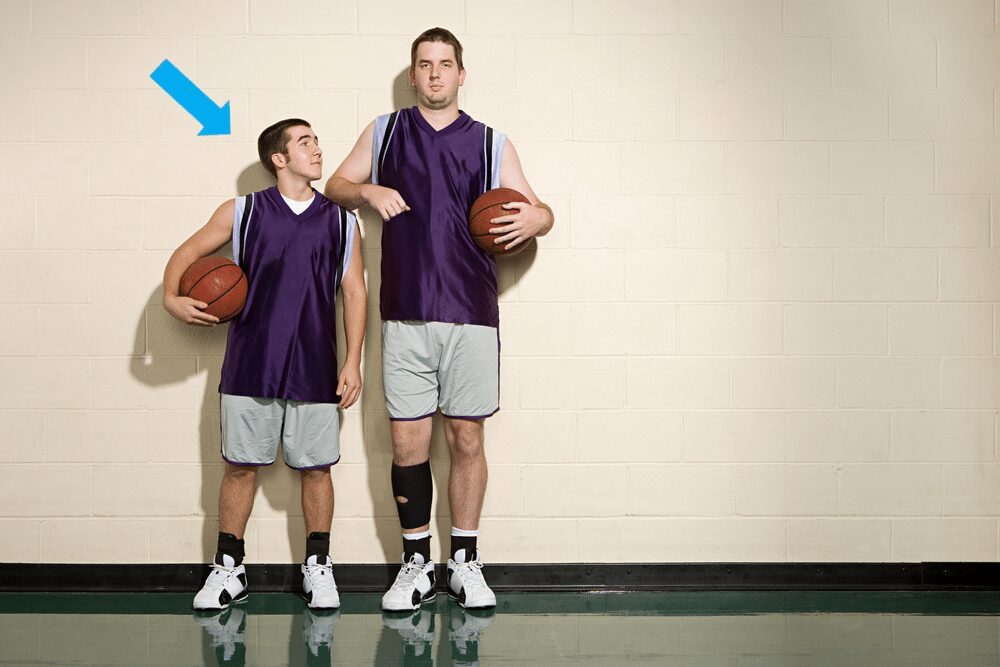French Comparative and Superlative: An Easy Guide

The comparative in French is used to describe the differences between items, while the superlative is used for talking about extremes in comparison. These two grammatical aspects of the French language are fairly straightforward to learn, but they will have a tremendous effect on your ability to communicate.
Download: This blog post is available as a convenient and portable PDF that you can take anywhere. Click here to get a copy. (Download)
The French Comparative
A comparative adjective states how two things relate to each other.
It allows you to say things like “I am faster than Dominic,” or “The black cat is bigger than the gray cat.”
In French, as in English, there are generally three levels of comparison: superior, inferior and equal.
Superior comparative adjectives show that something is more than something else.
Inferior ones indicate that something is less than something else.
Equal ones mean that something is equal to something else.
Forming comparative adjective sentences
To form regular comparative sentences in French, sandwich your adjectives between the following words:
- plus…que (more…than/___er than) for superior comparisons
- moins…que (less…than) for inferior comparisons
- aussi…que (as…as) or autant que (as much/many as) for equal comparisons
These adjectives look a little incomplete on their own, and granted, they are, so let’s see them in action.
Note that the adjective goes between the comparative adjective (plus, moins or aussi) and the que (that).
Check out these examples:
Le chat noir est plus grand que le chat gris.
(The black cat is bigger than the gray cat.)
Ta maison est moins chère que ma maison.
(Your house is less expensive than my house.)
Monique est aussi belle que Marie.
(Monique is as beautiful as Marie.)
Forming comparative adverb sentences
Even though we have used adjectives (words that describe a noun) to make comparisons in the above examples, you can also use adverbs (words that describe a verb) or verbs to make comparisons.
Like this:
Tu marches plus lentement que moi.
(You walk slower than me.)
Pièrre mange moins que Giselle.
(Peter eats less than Giselle.)
Je lis autant que François.
(I read as much as François.)
Forming comparative noun sentences
In comparative sentences, speakers must use de instead of que when the word that follows is a noun or a number.
Check out these examples to see what I mean:
Il a plus de chats que toi.
(He has more cats than you.)
Il y a moins de cent personnes à l’école.
(There are fewer than one hundred people at the school.)
The French Superlative
The superlative, on the other hand, is used to communicate an extreme.
It allows you to say, “I am the fastest,” or “My cat is the biggest.”
Unlike comparative adjectives in French, the superlative only has two levels of comparison: superior and inferior. This is because the superlative is all about the extreme.
Remember, you can’t be the absolute best at French grammar if you’re sharing the title.
Forming superlative sentences
While there are irregular forms in the superlative as well, forming regular French superlative sentences is very simple. Just place the superlative adjectives before the word.
Check out these two forms:
- le/la/les plus (the most/the ___est) for the superior superlative
- le/la/les moins (the least) for the inferior superlative
And now for some examples. Remember, like the comparative, you can use the superlative with adjectives, adverbs and verbs.
Il est le plus grand garçon.
(He is the tallest boy.)
Nous lisons le plus lentement.
(We read the slowest.)
Louis parle le moins.
(Louis speaks the least.)
In addition to these forms, you can form the superlative in a different way when speaking.
You can say either “Il est le plus grand garçon,” or you can say “Il est le garçon le plus grand.”
Both of these mean “He is the tallest boy.”
This is only appropriate for oral French, not written French.
Finally, you can use the preposition de (of) in order to put your superlative sentence in context.
For example:
Il est le plus grand garçon de l’école.
(He is the tallest boy in the school.)
Irregular Comparative and Superlative Forms
Lucky for you, there are only a couple mandatory irregular forms for comparative and superlative adjectives, plus a few optional ones.
Check out this list to keep these exceptions clear in your head.
Bon (good)
Just as it’s not grammatically correct to say “gooder than” or “the goodest” in English, you can’t say plus bon or le plus bon in French.
Instead, use the word meilleur in the comparative and le meilleur in the superlative.
Be aware, however, that bon is only irregular in the superior form — you can say moins bon (less good).
Mon livre est meilleur que ton livre.
(My book is better than your book.)
Mon livre est le meilleur.
(My book is the best.)
Ton livre est moins bon que mon livre.
(Your book is less good than mine.)
Bien (well)
Sometimes it’s difficult for learners of French to grasp the difference between bon and bien. Just remember, bon is an adjective and describes nouns, whereas bien is an adverb and describes verbs.
In the comparative form, bien becomes mieux (better).
In the superlative form, it becomes le mieux (the best).
Again, mieux is only used in the superior form.
Elle parle mieux français.
(She speaks French better.)
Elle parle français le mieux.
(She speaks French the best.)
Elle parle moins bien français.
(She speaks French less well.)
Mauvais (bad)
You can say plus mauvais…que in the superior comparative form and le mauvais in the superior superlative.
You can also say pire and le pire. Though these are sometimes interchangeable, pire and le pire appear more often in books than spoken language, and they are restricted to talking about abstract things.
Ce vin est plus mauvais que l’autre.
(This wine is worse than the other.)
Son attitude est pire que la mienne.
(His/her attitude is worse than mine.)
Elle est la plus mauvaise.
/ Ella est la pire.
(She is the worst.)
Petit (small)
In the superior comparative and superlative forms, you say plus petit que and le plus petit when talking about concrete nouns.
Je suis plus petit que Renard.
(I am smaller than Renard.)
Je suis le plus petit.
(I am the smallest.)
For abstract nouns, you use moindre que or le moindre. This almost gives the meaning of “less.”
Ce prix est moindre que le mien.
(That price is less than mine.)
Practice the Comparative and Superlative
One great way to practice the comparative and superlative is through French movies and books, which can help you see how native speakers actually use the comparative and superlative.
You also could try watching French videos through a more guided learning program, like FluentU.
FluentU takes authentic videos—like music videos, movie trailers, news and inspiring talks—and turns them into personalized language learning lessons.
You can try FluentU for free for 2 weeks. Check out the website or download the iOS app or Android app.
P.S. Click here to take advantage of our current sale! (Expires at the end of this month.)
You can also complete exercises about comparative adjectives at Lingolia.
You can practice both comparative and superlative adjectives at the University of Texas website.
I better hear you comparing good movies to bad movies, good French books to bad French books, apples to oranges!
Once you have, it’s on to the next French grammar lesson!
Download: This blog post is available as a convenient and portable PDF that you can take anywhere. Click here to get a copy. (Download)
And one more thing...
If you like learning French on your own time and from the comfort of your smart device, then I'd be remiss to not tell you about FluentU.
FluentU has a wide variety of great content, like interviews, documentary excerpts and web series, as you can see here:

FluentU brings native French videos with reach. With interactive captions, you can tap on any word to see an image, definition and useful examples.

For example, if you tap on the word "crois," you'll see this:

Practice and reinforce all the vocabulary you've learned in a given video with learn mode. Swipe left or right to see more examples for the word you’re learning, and play the mini-games found in our dynamic flashcards, like "fill in the blank."

All throughout, FluentU tracks the vocabulary that you’re learning and uses this information to give you a totally personalized experience. It gives you extra practice with difficult words—and reminds you when it’s time to review what you’ve learned.
Start using the FluentU website on your computer or tablet or, better yet, download the FluentU app from the iTunes or Google Play store. Click here to take advantage of our current sale! (Expires at the end of this month.)








